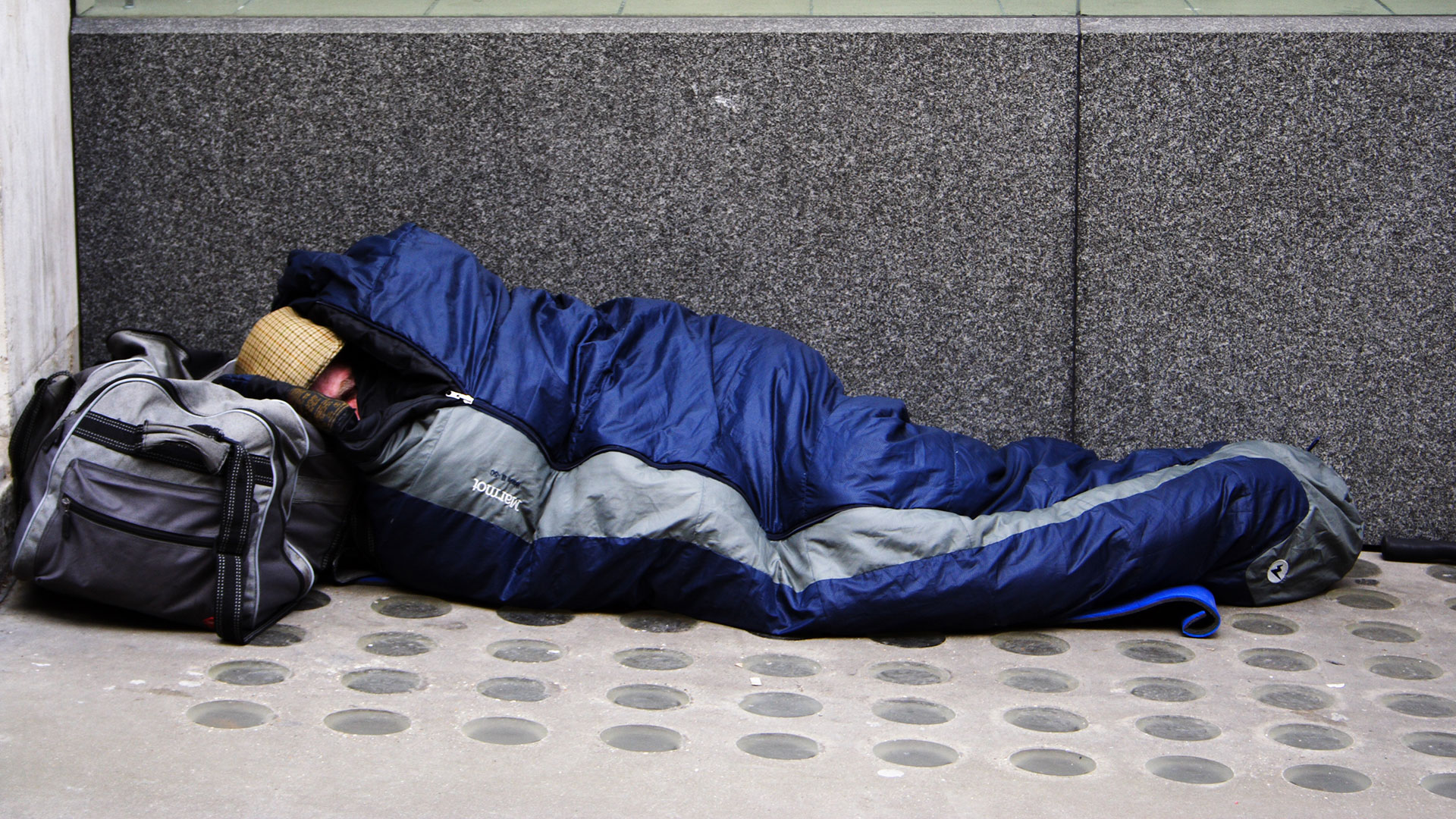“The Government promised to bring ‘everyone in’ but even these partial figures show 2,688 people spent this pandemic on the streets. It is extremely concerning they have not repeated the emergency support for rough sleeping that was in place during the first lockdown. There is a real risk that gains made last year will be lost.”
Housing Secretary Robert Jenrick called efforts to end rough sleeping “a moral mission” and an issue which should be “consigned to the history books”.
“Our priority [is] ensuring that the 37,000 vulnerable people and rough sleepers our landmark Everyone In programme has helped never return to a life on the street,” he said.
“The verified annual figures that we have published today show that we are well on our way and are a testament to the government’s commitment to support the most vulnerable in society backed with the £750 million we have invested in homelessness and rough sleeping this year alone.”
Official rough sleeping statistics have shown a steady increase for the majority of the last decade.
Advertising helps fund Big Issue’s mission to end poverty
The first recorded count in 2010 found 1,247 people sleeping rough on England’s streets but by 2019 a decade of austerity measures had seen that figure rise 141 per cent to 4,266 people.
While the statistics released on Thursday represent a third consecutive year of decline, the 2,688 people counted in autumn 2020 still shows a 52 per cent increase on the numbers sleeping rough in 2010.
Nearly half of people sleeping rough on a single night were recorded in London and the South East but the areas also demonstrated the largest annual decrease with 426 people sleeping rough down from 900 people last year. Most people sleeping rough were male, aged over 26 years old and from the UK.
Homeless charities and campaigners have warned the work done during the pandemic to reduce rough sleeping will be lost without greater long-term funding commitments and efforts to reduce the drivers of homelessness.
Homeless Link chief executive Rick Henderson said: “Prevention will be key going forward, but the end of the eviction ban in March and the risk that the Universal Credit uplift will be removed, threaten this. Having achieved so much, we must not lose momentum.
“We need to bring and keep everyone in for good, developing a longer-term funding strategy to ensure sustainable results and addressing the root causes of homelessness in all its forms.”
Advertising helps fund Big Issue’s mission to end poverty
Jon Sparkes, chief executive of Crisis, added: “The last 12 months have shown that when the political will is there, and homelessness is given the priority it deserves, we can bring people off the streets.
“As the country begins to move out of lockdown, the Government must have a plan to help people end their homelessness altogether and measures in place to prevent them from losing their homes in the first place. Otherwise, we risk seeing a surge in homelessness as soon as emergency measures are lifted.”
Polly Neate, chief executive of Shelter, also warned “the war is not won”.
However, the official rough sleeping snapshot figures have long been considered an underestimate.
This was underlined in January when the National Audit Office’s report into the Westminster Government’s response to homelessness said the 33,000 people housed in the Everyone In scheme “far exceeded” the numbers being officially recorded in the annual snapshot count.
Advertising helps fund Big Issue’s mission to end poverty
The latest Everyone In statistics, also released on Thursday, show that 11,263 people remained in emergency accommodation in January, up from 9,673 in December as councils reacted to Communities Secretary Robert Jenrick’s call to “redouble efforts” to protect rough sleepers during the latest national lockdown.
We do need to be wary of patting ourselves on the back too soon
A total of 26,167 people have moved on to permanent accommodation during the pandemic through the Everyone In scheme.
Charities have also warned more must be done to keep an accurate record of the number of people sleeping rough on the streets.
Lucy Abraham, chief executive of London homelessness charity Glass Door, said: “We’re seeing far too many people who are newly homeless. And this is before the main economic fallout from Covid has been felt. If we don’t do anything, rough sleeping will shoot up again.
“We also need to be critical of using what is essentially a best guess of what rough sleeping looks like on a given night as a proxy for how many people are actually homeless in the UK.
“We know these figures massively under-represent the true scale of rough sleeping and homelessness. This year the situation has been especially volatile, and we do need to be wary of patting ourselves on the back too soon.”
Advertising helps fund Big Issue’s mission to end poverty
Lorrita Johnson, The Salvation Army’s director of homelessness services, also insisted “the Government can’t keep guessing about the number of rough sleepers”.
Paul Noblet, head of public affairs for Centrepoint, added the “systemic inability” to count the number of people sleeping rough makes it “impossible for councils to secure the resources to fully tackle the problem.”









